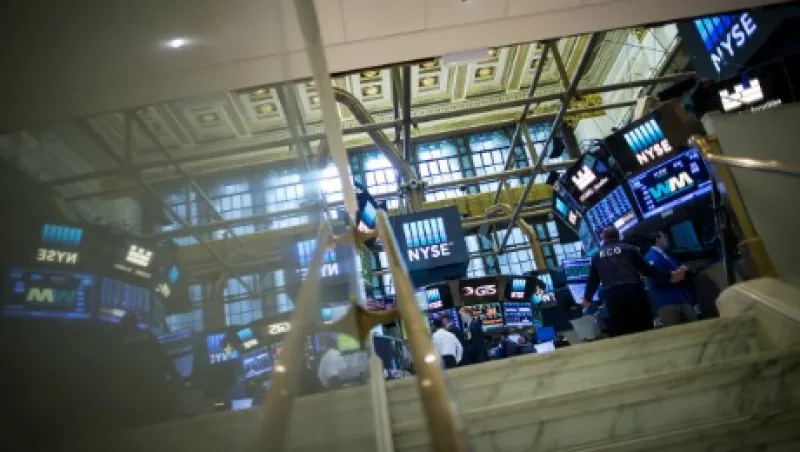After days of significant selling pressure in global stock markets, European and Asian shares rose modestly in early trading today, as did futures contracts linked to U.S. Treasury futures and crude oil. This potential shift in trend follows a small bounce for U.S. large-cap equities yesterday following a speech by Federal Reserve Governor Lael Brainard, in which she appeared to continue to support a dovish policy stance. Despite indications that many investors have concluded that there is no need for panic and that the end of extraordinary stimulus measures by central banks will be a long, drawn-out process, implied volatility in U.S. and European options markets remains elevated relative to recent averages. This volatility suggests that many are keeping an eye on the exit as they hedge exposures. As calm, if not complacency, over central bank policy returns, a fresh round of political uncertainty has arisen in the U.S. as GOP presidential candidate Donald Trump’s standing in polls improves in key states amid concerns over the health of Democratic rival Hillary Clinton.
Bayer sweetens offer to secure Monsanto. Media reports early today based on unnamed sources indicated that German chemical producer Bayer has reached a final agreement to buy St. Louis-based Monsanto for more than $60 billion, including assumed debt. If consummated, the merger will create the world’s largest agrichemical company. Monsanto’s board has rejected three earlier offers from Bayer since May, while continuing to pursue a higher price.
U.K. jobs markets remains strong. Fresh data from the U.K. Office for National Statistics released this morning revealed that unemployment, at 4.9 percent, remained at the lowest level in more than a decade during the three months that ended in July, as the pace of job creation picked up despite Brexit jitters. Wage growth over the period moderated slightly to an annualized 2.1 percent. This is the latest data that suggests the impact on corporate sentiment of the departure from the European Union may be less dramatic than initially feared, though the actual exit has not yet occurred. The Bank of England projects a gradual rise in the jobless rate peaking near 6 percent in 2018.
Icahn talks up increased Herbalife stake. In comments at Institutional Investor’s Delivering Alpha conference in New York yesterday, activist investor Carl Icahn revealed that he has requested that the U.S. Federal Trade Commission provide him with a greenlight to increase his holding in shares of Herbalife to a 50 percent stake and mused that the company might be taken private. This marks the latest round in a widely publicized sparring match between Icahn and Pershing Square Capital Management CEO Bill Ackman, who has long been short the multilevel marketing dietary supplements company.
Portfolio Perspective: Only the Beginning — Jim Strugger, MKM Partners
As volatile as the last few days have felt, the 2.7 percent Standard & Poor’s 500 Index dip has barely registered on the VIX futures curve. The front end of the curve has flattened, but it is not yet inverted and the back end remains a couple of volatility points below the average trough level during the July 2007-January 2013 regime.
Spot VIX had an average peak of 34 over those years, with the main shock in the fall of 2008 excluded. Even a fairly benign event would see VIX reach into the upper-20s. That would likely correspond with a pullback in SPX that totals at least 7 percent. The prior high-volatility regime in 1997-2001 saw similar magnitude shocks.
So we think the probable outcome is for this disturbance to intensify. Might we instead see a post-Brexitesque unwind of volatility that sets risk assets right back on a path higher? Sure, but the combination of dangerous seasonality and a continuous timeline of potential trigger points ahead means the risk of a high-magnitude event developing outweighs the benefits of ignoring that potential outcome.
Jim Strugger is a managing director and derivatives strategist for MKM Partners in Stamford, Connecticut.






